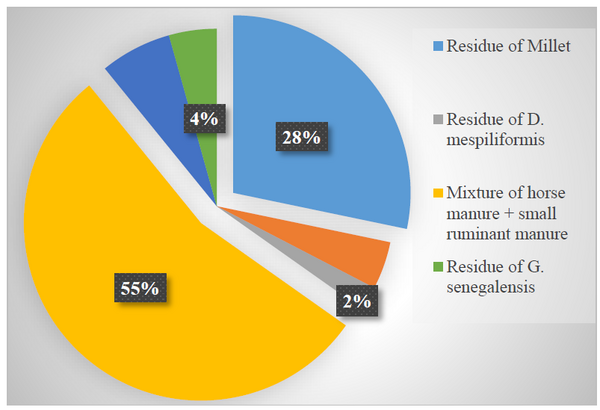Introduction
The Sahel region is facing numerous challenges in agricultural production due to factors like low soil fertility, erratic rainfall, and minimal use of agrochemical inputs. In response to these challenges, initiatives such as the SustainSahel project have emerged, focusing on sustainable food production through crop-shrub-livestock integrated (CSL) systems. These systems, which integrate crops, shrubs, and livestock, offer a holistic approach to farming that promotes soil health, biodiversity, and resilience to climate change.
Building on the success of the CSL approach, this article explores the co-creation of agroforestry systems through a participatory approach involving volunteer farmers in Niakhar. In the same vein, farmers in Senegal a particularly in Niakhar, have many challenges that are threaten food security and livelihoods in the zone, necessitating innovative approaches to agricultural production. SustainSahel proposes the implementation of agroforestry systems as a sustainable alternative for Sahelian farmers. By integrating trees and shrubs into agricultural landscapes, these systems enhance soil fertility, improve crop productivity, and provide additional benefits such as fodder for livestock. Through the adoption of agroforestry practices, farmers can mitigate the impacts of climate change while enhancing their resilience and livelihoods.
Methodology
The participative approach employed by WP4 team of SustainSahel involves engaging volunteer farmers in the co-creation of agroforestry systems. This approach begins with capacity-building workshops aimed at educating farmers about the benefits of agroforestry and encouraging innovation in agricultural practices. An Innovation Platform (IP) facilitates dialogue and collaboration among stakeholders, including farmer organizations, advisory services, and local communities.
A network of volunteer farmers from 12 villages in Niakhar has been established to implement agroforestry innovations. These farmers, totaling 28 individuals, have shown their interest to implement the technologies in their farm. Various innovations, including the use of millet residue, organic matter (manure), and shrub residues (Guiera Senegalensis, Diospyros mespiliformis), have been tested in farmer’s fields. Technical support is provided throughout the implementation process, ensuring proper application and monitoring of innovations.
Results and Recommendations
Preliminary results indicate improvements in millet and peanut yields across all innovations, with the treatment using a mixture of horse and small ruminant manure showing the most significant impact. The co-creation of agroforestry systems through a participatory approach offers significant advantages for the Sahelian zone of Niakhar. To further enhance this approach, it is recommended to strengthen mechanisms of community participation, integrate traditional knowledge, promote crop diversification, invest in local capacity building, and foster intersectoral collaboration.
Knowledge Sharing and Adoption
The success of these initiatives can be attributed to the active participation and enthusiasm of volunteer farmers, who have embraced the principles of sustainable intensification. Through capacity building workshops and knowledge exchange sessions facilitated by the SustainSahel project, farmers have gained valuable insights into the ecological benefits of CSL systems. As a result, they are more motivated to adopt innovative techniques and integrate woody trees into their farming practices.




 tap and then scroll down to the Add to Home Screen command.
tap and then scroll down to the Add to Home Screen command.